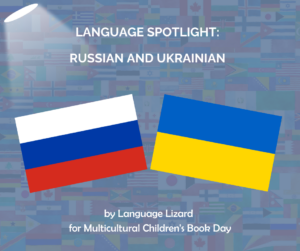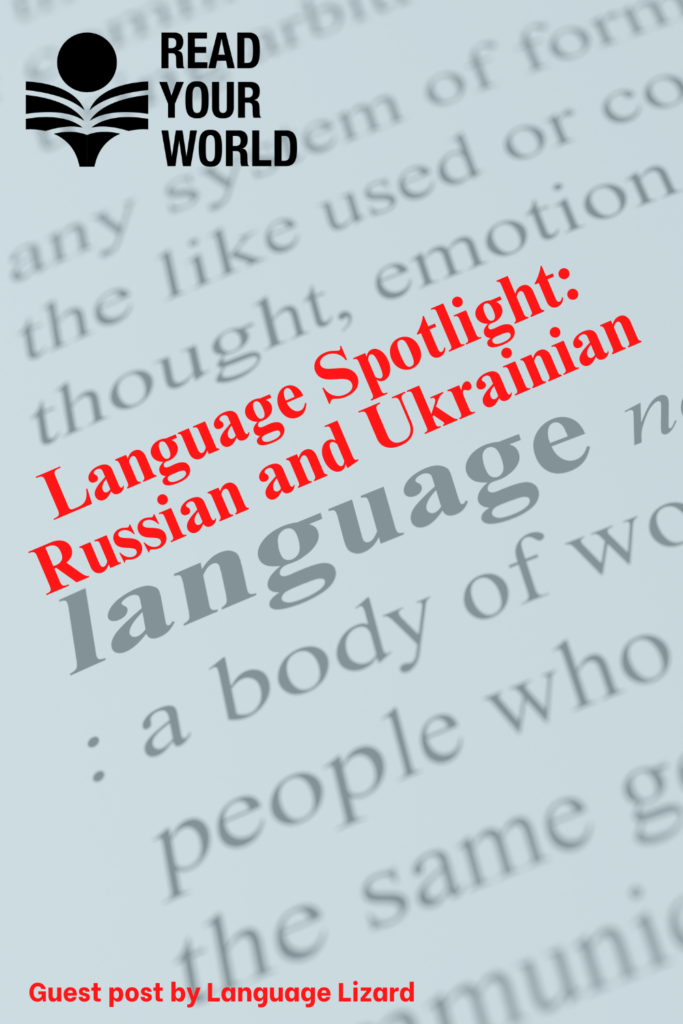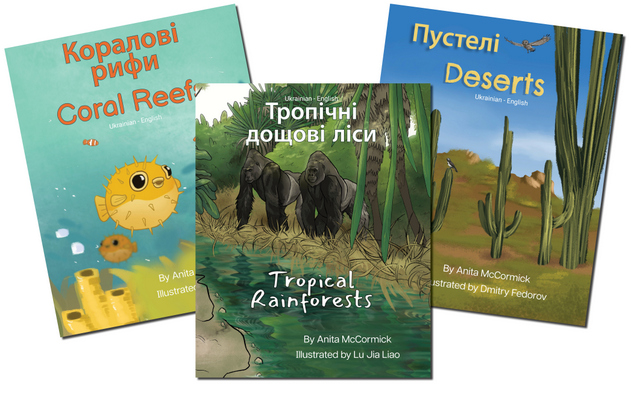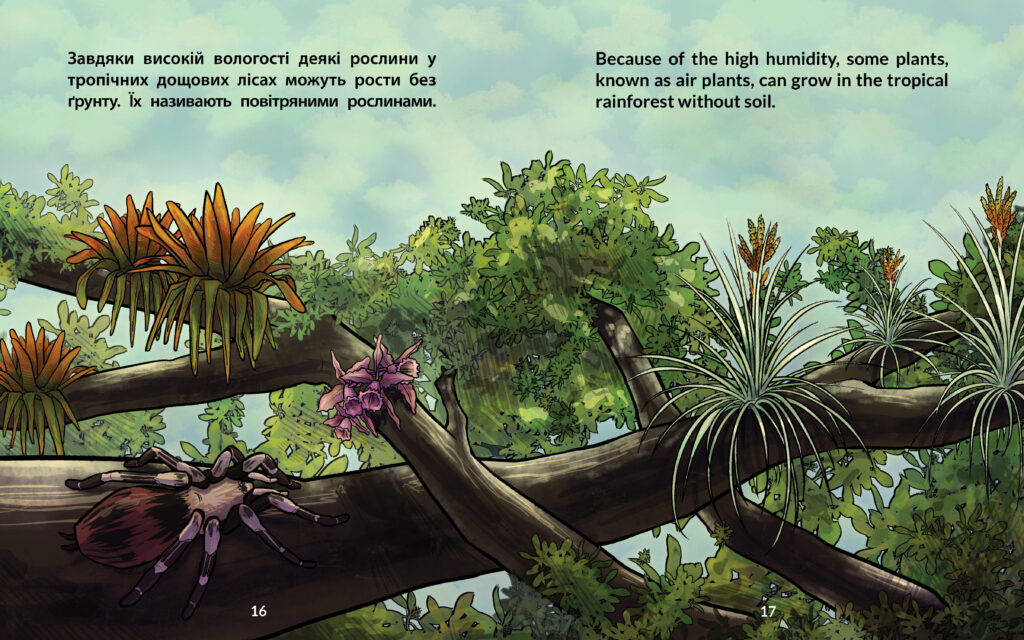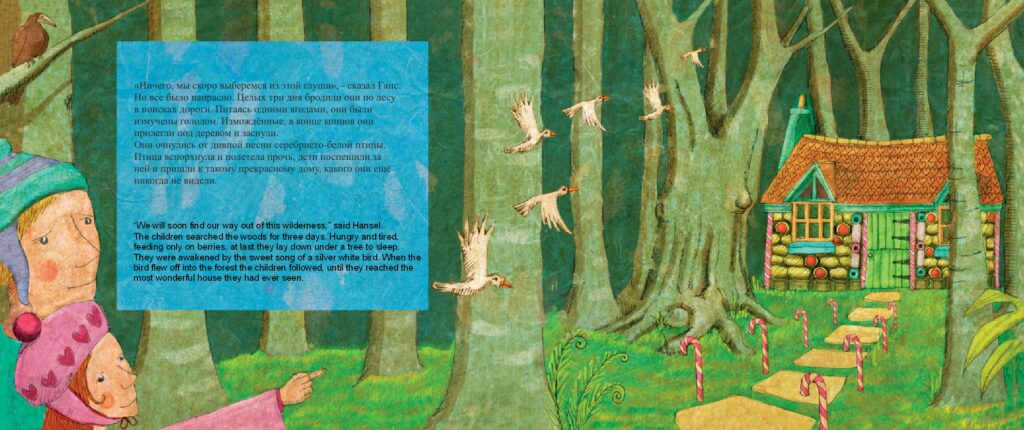Guest post by Language Lizard, 2023 Platinum Sponsor
Today’s language spotlight features the Russian and Ukrainian languages! These two languages are widely spoken in Eastern Europe, with Russian being the official language of Russia, as well as that of Belarus, Kyrgyzstan, and Kazakhstan, and Ukrainian being Ukraine’s official language. Despite being closely related, each language has its own alphabet, vocabulary, and grammar rules, making each language unique.
History
While Russian and Ukrainian are Slavic languages from the Indo-European family, each language has evolved to reflect different historical and geographical impacts. For instance, there are influences from Tatar and French in the Russian language, while Polish and Turkish have influenced Ukrainian. 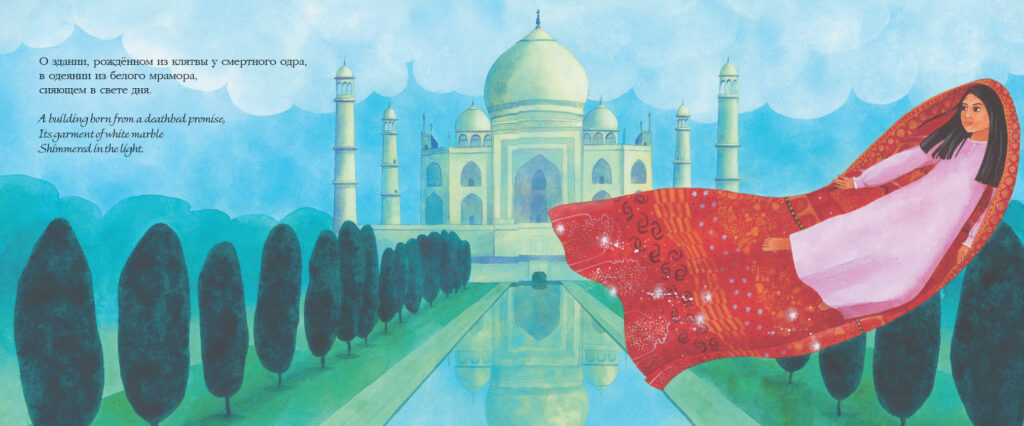
Image from the Russian bilingual book: Journey Through Islamic Arts
Historically, Ukraine used to be a part of the former Soviet Union, which made Russian a more prevalent language resulting in many Ukrainians understanding Russian but not as many Russians understanding Ukrainian. However, Ukrainian became the official language of Ukraine in 1989, two years before the independence of the Ukrainian Republic, and was reaffirmed as the country’s official language in 1996 in the country’s constitution. Today, some people use a mixture of Ukrainian and Russian, referred to as Surzhyk.
Alphabet
Russian and Ukrainian share the Cyrillic alphabet, but there are letters in the Russian alphabet that are not found in the Ukrainian alphabet and vice-versa. In addition, there is one more case for nouns in Ukrainian.
Image from the Ukrainian bilingual book: Tropical Rainforests
Vocabulary
Both languages share many words, specifically about 60% of their vocabulary. However, there are also many words, also known as false friends, in the two languages that look and/or sound the same but have different meanings.
Pronunciation
The Ukrainian language has a softer accent, with more vowels. The Russian language has a harder, sharper sound with fewer vowels. While some words in both languages have the same pronunciation, others may sound different. For example, the Ukrainian “і” is pronounced as “i,” while in Russian, it is pronounced as “y.”
Image from the Russian bilingual book: Hansel and Gretel
Grammar
The sentence structure in both languages is subject-verb-object, with verbs conjugated to indicate tense, person, and number. Ukrainian grammar is more complicated than Russian. It has more inflections, gender constructions, and noun cases. For instance, Ukrainian has seven cases, while Russian has only six. Moreover, Ukrainian pronouns have different genders and numerals.
Language Resources – Bilingual Children’s Books
Looking for some great bilingual books? Check out our extensive collection of books in both Russian-English and Ukrainian-English which are perfect for readers of all ages. Books range from board books to non-fiction titles to ones perfect for the older language learner.
